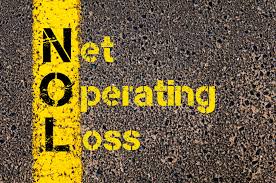NOL (Net Operating Loss) Rules Changes
 The CARES Act made three changes to Net Operating Losses (NOLs) to improve cash flow for struggling businesses:
The CARES Act made three changes to Net Operating Losses (NOLs) to improve cash flow for struggling businesses:
- Provided a five-year carryback for losses earned in 2018, 2019, or 2020, which allows firms to modify tax returns up to five years prior to offset taxable income from those tax years.
- Suspended the NOL limit of 80 percent of taxable income. This means that firms may deduct their NOLs to eliminate all of their taxable income in a given year, instead of having to carry forward any NOL beyond 80 percent of taxable income.
- Pass-through business owners may use NOLs to offset their non-business income above the previous limit of $250,000 (single) or $500,000 (married filing jointly) for 2018, 2019, and 2020.
The IRS has also granted a six-month extension of time to file Form 1045 or Form 1139, as applicable, with respect to the carryback of an NOL that arose in … Read More




